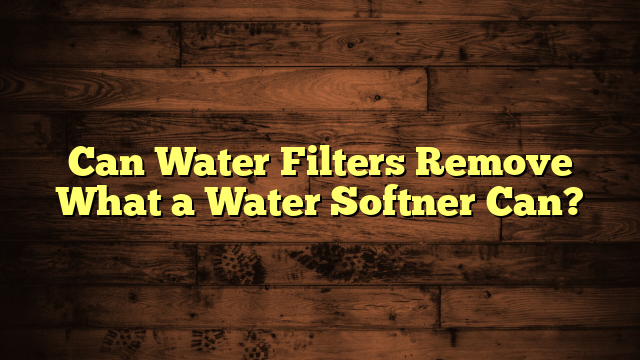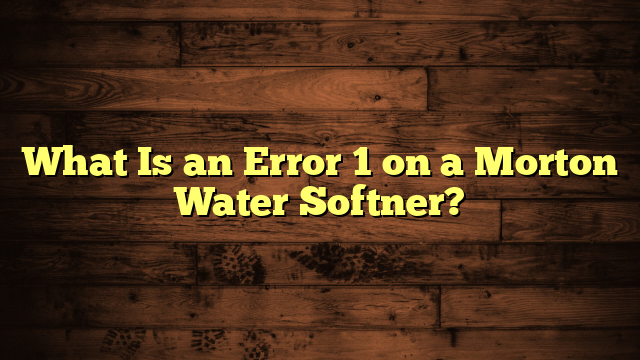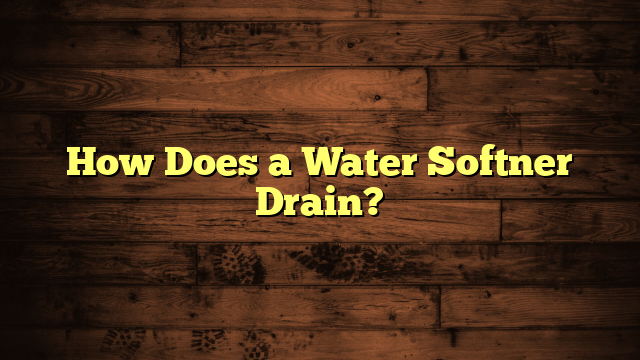Can Water Filters Remove What a Water Softner Can?
You might be wondering whether water filters can do the same job as water softeners when it comes to improving your water quality. While both systems aim to enhance your water, they tackle different issues—filters focus on removing impurities, while softeners target hardness. This distinction raises significant questions about which system is right for your needs. If you're considering a solution to your water problems, it's essential to understand these differences and the implications for your health and appliances. What might you be missing if you rely on one over the other?
Key Takeaways
- Water filters are designed to remove contaminants like chemicals and biological impurities, while water softeners target hard minerals like calcium and magnesium.
- Filters improve water taste and safety by eliminating specific impurities, but they don't address water hardness issues.
- Softeners use ion exchange to replace hard minerals with sodium, which is not a function of water filters.
- Using both a filter and a softener can provide comprehensive water treatment, addressing both contaminants and hardness.
- Choosing between a filter and a softener depends on whether the primary concern is water quality or hardness.
Understanding Water Filters
When it comes to clean drinking water, understanding water filters can really make a difference. You mightn't realize it, but the quality of your drinking water can greatly impact your health. Water filters use various filtration techniques to remove contaminants, making your water safer and more pleasant to drink.
There are several types of filters available, each designed for specific purposes. For instance, activated carbon filters are excellent for removing chlorine and other organic compounds, while reverse osmosis systems can tackle a broader range of impurities, including heavy metals.
Knowing what contaminants are present in your water helps you choose the right filter for your needs.
It's also crucial to maintain your filter properly. Regularly replacing the filter cartridge and following the manufacturer's guidelines guarantees peak performance.
If you neglect maintenance, you risk reducing the effectiveness of your filtration system, which can compromise your water quality.
Understanding Water Softeners
Water softeners play an essential role in improving your home's water quality by reducing hardness caused by minerals like calcium and magnesium.
They work by exchanging these hard minerals for sodium ions, making your water gentler on appliances and your skin.
Understanding how water softeners function can help you make informed decisions about your household water needs.
Purpose of Water Softeners
The primary role of water softeners is to reduce the hardness of your water, which often comes from high levels of calcium and magnesium. Hard water can negatively impact your water quality and system efficiency, leading to issues like scale buildup in pipes and appliances. By softening your water, you can improve both the longevity of your plumbing and the effectiveness of soaps and detergents.
Here's a quick overview of the benefits of using a water softener:
| Benefit | Description |
|---|---|
| Improved Water Quality | Softer water feels better on your skin and helps prevent soap scum. |
| Enhanced System Efficiency | Appliances run smoother and last longer without scale buildup. |
| Cost Savings | Reduced energy bills and fewer repairs to plumbing systems. |
Using a water softener can greatly impact your daily life, from the way your skin feels after a shower to how well your appliances function. If you're struggling with hard water, investing in a water softener might be a wise choice for maintaining your home's water quality and overall efficiency.
How They Work
Understanding how water softeners work reveals the science behind transforming hard water into a more manageable solution.
At the heart of this process are softening mechanisms that primarily utilize ion exchange. In simpler terms, your water softener replaces hard minerals—like calcium and magnesium—with sodium ions. This exchange occurs in a resin tank, where the hard water flows through resin beads coated with sodium.
As the water passes through, the calcium and magnesium ions cling to the beads, while sodium ions are released into the water. This is a vital step in the filtration processes that enhance water quality.
Once the beads become saturated with hard minerals, the system regenerates by flushing them with a brine solution, restoring the sodium coating.
You'll notice the benefits of softened water almost immediately. Not only does it feel smoother on your skin, but it also prevents mineral buildup in your pipes and appliances.
Understanding these processes can help you appreciate the importance of water softeners in your daily life, ensuring you enjoy cleaner, softer water that's easier to manage.
Key Differences in Function
Understanding the key differences in function between water filters and water softeners is essential for making an informed choice for your home.
While water filters are designed to remove specific contaminants, water softeners tackle hard minerals that can cause scaling and buildup.
Knowing the purpose of each system, the types of contaminants they address, and their treatment methods will help you choose the right solution for your water needs.
Purpose of Each System
Water filters and water softeners serve distinct purposes, each addressing specific issues in your water supply.
When you think about water quality, a filter's primary job is to remove contaminants, ensuring that the water you drink and use is safe and clean. Filters target particles like chlorine, bacteria, and sediment, which can affect taste and health. This enhances your drinking experience and improves the overall system efficiency of your plumbing by preventing buildup.
On the other hand, water softeners focus on hard water issues, specifically the minerals like calcium and magnesium that can create scale buildup in your pipes and appliances.
Types of Contaminants
Contaminants in your water can vary widely, and knowing the differences between what filters and softeners tackle is essential. Each system serves a unique purpose, addressing specific types of issues.
Here are three key types of contaminants you should be aware of:
- Chemical Contaminants: These include substances like chlorine, lead, and pesticides. Water filters are designed to remove these harmful chemicals, ensuring your drinking water is safe and clean.
- Biological Contaminants: Bacteria, viruses, and protozoa fall into this category. Water filters, especially those with UV technology or reverse osmosis, can effectively eliminate these pathogens, protecting your health.
- Hard Minerals: Calcium and magnesium are the primary culprits in hard water. This is where water softeners come in, as they specifically target these minerals to prevent scale buildup in your plumbing and appliances.
Understanding these differences helps you choose the right system for your needs.
While water filters excel at removing chemical and biological contaminants, water softeners focus solely on addressing hardness. Knowing what you're dealing with makes all the difference in maintaining clean and safe water for your home.
Treatment Methods Explained
When it comes to treating your water, filters and softeners operate on fundamentally different principles.
Filtration techniques focus on removing impurities and contaminants from your water, such as sediment, chlorine, and bacteria. Water filters typically use materials like activated carbon or ceramic to capture these unwanted elements, making the water safer and more pleasant to drink.
On the other hand, softening methods target specific minerals that cause hard water, mainly calcium and magnesium. Water softeners use a process called ion exchange, where these hard minerals are swapped out for sodium or potassium ions. This process doesn't remove contaminants but rather alters the water's chemical composition to prevent scale buildup in pipes and improve soap lathering.
While both systems enhance your water quality, they serve different purposes. If you're primarily concerned about contaminants, filtration is your go-to option.
However, if hardness is the issue, a water softener will be more effective. Understanding these key differences helps you choose the right treatment method for your needs, ensuring you enjoy clean, soft water tailored to your preferences.
Contaminants Removed by Filters
In your quest for clean drinking water, understanding what a filter can remove is essential. Filters utilize various filtration methods to target specific contaminants, considerably enhancing water quality.
Here are three common contaminants that filters can effectively eliminate:
- Chlorine: Often used to disinfect water, chlorine can leave a strong taste and odor.
- Sediment: Particles like dirt, rust, and sand can affect not only the taste but also the clarity of your water.
- Heavy Metals: Contaminants such as lead and mercury can pose serious health risks.
By choosing the right filtration method, you can tailor your water treatment to your needs.
For instance, activated carbon filters are excellent for removing chlorine and improving taste, while reverse osmosis systems can reduce heavy metals and other pollutants.
Understanding these methods will help you make informed decisions about your water quality.
Minerals Removed by Softeners
Water softeners play an essential role in improving the quality of your water by removing unwanted minerals. The softening process targets hard minerals like calcium and magnesium, which can affect your water's mineral composition. These minerals are responsible for water hardness, leading to scale buildup in pipes and appliances.
When you use a water softener, sodium ions replace these hard minerals during the ion-exchange process. This exchange effectively reduces the concentration of calcium and magnesium in your water, resulting in softer water.
By removing these minerals, your water becomes more compatible with soaps and detergents, allowing them to lather and clean more effectively. Additionally, you'll likely notice that your skin feels softer after washing, and your laundry will come out cleaner and brighter.
While water softeners don't eliminate contaminants, they greatly enhance your water's usability and overall quality. By understanding the minerals removed by softeners, you can appreciate the benefits of investing in one for your home.
In the end, a water softener can make a noticeable difference in your everyday life, providing you with the soft water you need for various household tasks.
Impact on Plumbing and Appliances
Many homeowners underestimate the impact that water softeners have on plumbing and appliances. The benefits often extend beyond just the quality of water you drink; they can greatly affect your home's infrastructure.
Here are three key ways water softeners influence your plumbing and appliances:
- Reduced Pipe Corrosion: Hard water contains minerals that can corrode your pipes over time. By softening the water, you can minimize this corrosion, leading to fewer leaks and repairs.
- Extended Appliance Lifespan: Appliances like dishwashers, washing machines, and water heaters function better with softened water. This can translate to longer-lasting appliances and savings on replacements.
- Improved Efficiency: Softened water can improve the efficiency of your plumbing and appliances, reducing energy costs and enhancing performance.
Health Benefits of Each System
While both water filters and water softeners serve important roles in improving your water quality, they offer distinct health benefits that can impact your well-being.
Water filters primarily focus on removing contaminants like lead, chlorine, and bacteria from your drinking water. By providing cleaner water, they help reduce potential health impacts linked to these harmful substances, like gastrointestinal issues and long-term exposure risks. You'll likely notice a difference in taste and smell, encouraging you to stay hydrated and drink more water.
On the other hand, water softeners tackle hard minerals such as calcium and magnesium. By softening your water, these systems can lead to softer skin and hair, reducing irritation for those with sensitive skin or conditions like eczema.
Furthermore, soft water may enhance the effectiveness of soaps and shampoos, making your hygiene routine more efficient.
Ultimately, understanding the health benefits of each system allows you to make informed choices that enhance your overall well-being. Whether you prioritize removing contaminants or improving skin health, both systems can contribute positively to your daily life.
Choosing the Right Solution
Selecting the right solution for your water needs hinges on understanding your specific concerns and preferences. When deciding between a water filter and a water softener, consider several key factors that cater to your lifestyle and health requirements:
- Water Quality: Assess whether you're dealing with hard water issues or contaminants that require effective filtration.
- Filter Efficiency: Research various filtration systems to guarantee they meet your needs for removing specific impurities while maintaining good taste.
- Softeners Maintenance: Evaluate the maintenance requirements of softeners, including salt usage and regular upkeep, to guarantee they fit your routine.
A water filter excels in removing impurities, enhancing taste, and improving safety. In contrast, a water softener primarily addresses hard water, reducing scale buildup and extending the lifespan of your appliances.
Knowing this allows you to make an informed decision. If you prioritize clean, safe drinking water, a filter might suit you best. If hard water is your main concern, investing in a softener can alleviate related issues.
Ultimately, understanding your unique needs will guide you toward the solution that best fits your home and lifestyle.
Frequently Asked Questions
Can Water Filters Soften Water Like Water Softeners Do?
Water filters can't soften water like water softeners do. While filters excel at mineral removal, they can't effectively address water hardness. For softening, you need a water softener to tackle those pesky minerals.
Are Water Filters More Environmentally Friendly Than Water Softeners?
Like a modern-day Sir Galahad seeking eco-friendly solutions, you'll find that water filters often embody better sustainability practices than water softeners. They reduce waste and chemical usage, making them a greener choice for your home.
How Often Do Water Filters Need to Be Replaced?
You should check your water filter's replacement frequency based on usage and manufacturer guidelines. Regular filter maintenance is essential; typically, most filters need replacing every three to six months to guarantee peak performance and water quality.
Do Water Softeners Require Electricity to Operate?
You know what they say: "Where there's a will, there's a way." Most water softeners require electricity for operation, so you'll need to contemplate their electricity consumption when deciding on installation and usage.
Can Water Filters Improve Taste and Odor Better Than Softeners?
Water filters excel in taste enhancement and odor removal, greatly improving your drinking experience. While softeners focus on hardness, filters tackle impurities, ensuring you enjoy clean, fresh-tasting water without unpleasant smells or flavors.
Conclusion
In conclusion, water filters and water softeners each play crucial roles in improving water quality, but they tackle different issues. Did you know that nearly 85% of U.S. homes have hard water? This statistic highlights the significance of water softeners in preventing scale buildup. Filters, on the other hand, guarantee you're drinking clean, safe water by removing harmful contaminants. By understanding their unique functions, you can choose the right solution for your specific water needs, enhancing both health and appliance longevity.







